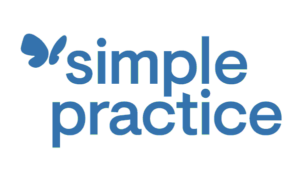Podcast: Play in new window | Download (Duration: 1:06:22 — 121.5MB)
Subscribe: Apple Podcasts | Spotify | Amazon Music
“It's not about letting harms and injustices get a free pass. It's about making choices about how you seek that accountability in a way that's more likely to be effective.”
Calling in Call-out Culture and lots more…. see show notes below for more resources!
Loretta J. Ross is an activist, professor, feminist and warrior of reproductive justice and human rights. She is a master of a kind yet powerfully effective confrontation and advocacy. In this episode she teaches about self-forgiveness as an important missed step in advocacy, the 5 C Continuum and surprisingly, she debunks the idea of security and safety as a goal in human relating. She doesn't believe in safety for good reason – it's a good wake up call.
Join us in a powerful discussion with Ross and co-host, Sue Marriott as they look at young radicals, the idea of inclusive human justice work (this means everybody) and her techniques that many who know co-regulation will appreciate.
About Loretta J Ross
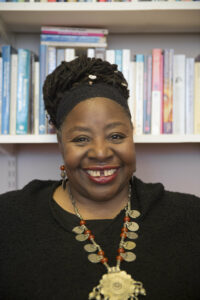 Beginning her series of careers as a human rights activist, Loretta J. Ross has dedicated her life to social change. She has worked at the National Football League Player's Association, the DC Rape Crisis Center, the National Organization for Women (NOW), the National Black Women's Health Project, the Center for Democratic Renewal (National Anti-Klan Network), the National Center for HumanRights Education, and SisterSong Women of Color Reproductive Justice Collective. After her retirement in 2012, she continues her influential efforts by teaching Women and Gender studies as a clinical professor at Smith College in Georgia.
Beginning her series of careers as a human rights activist, Loretta J. Ross has dedicated her life to social change. She has worked at the National Football League Player's Association, the DC Rape Crisis Center, the National Organization for Women (NOW), the National Black Women's Health Project, the Center for Democratic Renewal (National Anti-Klan Network), the National Center for HumanRights Education, and SisterSong Women of Color Reproductive Justice Collective. After her retirement in 2012, she continues her influential efforts by teaching Women and Gender studies as a clinical professor at Smith College in Georgia.
Among her dedication to change, she has also been the author and co-author of many books and articles, including Reproductive Justice: An Introduction with Rickie Solinger, and Radical Reproductive Justice: Foundations, Theory, Practice, Critique. Ross has also been featured in many impressive news outlets like the New York Times, Washington Post, Los Angeles Times, TIME magazine, and many others. In 2022, she plans to release her most recent piece, Calling in the Calling Out Culture.
“Call-out culture” – is a term coined within the last few years, but it is a concept that has existed long before. With a society immersed in technology, there are many positives about the seemingly never-ending conversation, but with this increase in connection and immediate dialogue, there's also an increase in the ability to speak negatively to and about one another. How do we educate others without tearing them down?
In a divided world, changing our approach can help create social change.
“Calling in is to invite people into a conversation rather than a fight.” L.J. Ross

For the young fighters:
Stop imagining that you're the entire chain of freedom, the whole revolution doesn't rest on your shoulders. The chain of freedom stretches backward towards all of our ancestors and forward into our descendants. Our whole job is to simply make sure that the chain doesn't break at our link.
“You are more likely to have an influence,” she said, “if you are listening carefully, respecting their humanity even as you disagree with them. The person who uttered those hard words will start walking them back because they did not get the reaction they were counting on.” Calling out someone, with the intent to shame and humiliate, “can be a paradox, because it’s not likely to get you the results you desire. It’s more likely to lock someone into their position.”
Time Stamps:
2:00 – About Loretta J. Ross – personal story, Calling In Call-Out Culture backstory
10:16 – Young radicals – The Importance of Understanding Perspective
11:56 – Self Forgiveness – IMPORTANT POINT
17:03 – Breaking Down the Concept of “Appropriate Whiteness”
20:46 – Understanding “Performative Activism”
25:17 – Exploration of what “Safety” really is – Loretta schools Sue 🙂
29:24 – The “5 C Continuum”
51:54 – Utilizing your “Toggle Switch” of Consciousness
This episode has been sponsored by SimplePractice—Both Sue and Ann use Simple Practice which frees them up to focus on what matters most, their clients and Therapist Uncensored. Simple Practice is the leading practice management platform for private practitioners everywhere. More than 100,000 professionals use SimplePractice to power telehealth sessions, do billing, schedule appointments, file insurance claims, market, and so much more—all on one HIPAA-compliant platform.
Get your first 2 months of SimplePractice for free when you sign up for an account today as a Therapist Uncensored listener. This exclusive offer is valid for new customers only and by signing up through the following link:simplepractic.com/therapistuncensored
Resources:
Loretta J Ross's Website Loretta J Ross
What if Instead of Calling People Out, We Called Them In? – New York Times Article
Purchase Loretta's book, “Reproductive Justice: An Introduction”
Purchase Loretta's book, “Undivided Rights: Women of Color Organizing for Reproductive Justice”
“Human Rights and Reproductive Justice” with Loretta Ross – The Trail Article
The Future Is ‘Radical Reproductive Justice’ – Rewire Newsgroup Article
Fighting White Supremacy and White Privilege to Build a Human Rights Movement
“Eugenicists Never Retreat, They Just Regroup: Sterilization and Reproductive Oppression in Prisons” – Article by Loretta J Ross
Loretta J Ross recognized as one of 14 Badass Women – Refinery 29 Article
Voices of Feminism Oral History Project Interview of Loretta Ross – PDF
Loretta Ross Papers – Smith College Libraries
Calling In the Calling Out Culture: A Continuum of Accountability – Loretta J Ross Speech
“I Hope We Choose Love: A Tran's Girl's Notes from the End of the World” – Book by Kai Cheng Thom, Arsenal Pulp Press, 2019
“Calling IN: A Less Disposable Way of Holding Each Other Accountable”– Article by Ngọc Loan Trần, BGD, 2013
“We Will Not Cancel Us: And Other Dreams of Transformative Justice” – Book by Adrienne Maree Brown, AK Press, 2020
“The Body Is Not an Apology: The Power of Radical Self-Love” – Book by Sonya Renee Taylor, Berrett-Koehler Publishers, 2018
“Reproductive Justice” one of her first pieces written alongside Rickie Solinger
If you enjoy this content please consider joining our online community as a TU Neuronerd and help support Sue and Ann in getting this content out to the world.
For deeper dives into topics and specific episodes, join our online community for as little as $5 a month. As a member you get extra content, ad-free feed, Ask Me Anything sessions, discounts on anything we produce, study opportunities, and – in Feb 2022 we will meet in a live Zoom session after a series of private episodes breaking down Jill Bolte-Taylor's, Whole-Brain Living. If you are seeing this afterward, all this will be accessible plus new things we are finding interesting at the time.
Transcript – Lightly Edited for Readability
Can you tell us a little about yourself?
My name's Loretta Ross, and I'm a Texas gal born in Temple, Texas grew up in San Antonio, Texas, and feel like I'm an I-35 family. But I live in Atlanta, Georgia now because I've been gone from Texas since the days of the Hemisfair. I left in 1970 to go to college. And I haven't lived back in Texas since then. I'm a professor at Smith College in the program for the study of women and gender because I'm a professional feminist. I became a feminist when I went off to college at the age of 16 and I haven't looked back, I've worked in women's rights, civil rights, human rights work for more than 50 years.
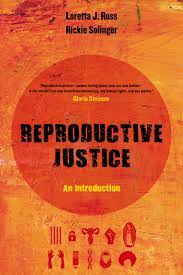
Right now I'm really focused on not what work we do, but how we do the work. And so I started six years ago, a book called Calling in the Calling Out Culture. And it actually can be blamed on my grandson because at the age of about 12, he decided he didn't know how to answer his cell phone. I knew this was incomprehensible because every kid knows how to answer the cell phone, but it would go to voicemail. And he said grandma if you want to reach me, get on Facebook. I got on Facebook just in time for him to immediately migrate off saying it was for old fogies now. And I didn't follow him to Snapchat or wherever he went, but I stayed on Facebook.
And that's when I noticed how unbelievably mean people were to each other. I am convinced that people give themselves license to say things online behind that cloak of anonymity if they wouldn't dare say to a person's face. And so when I noticed this and then pointed it out to some young people I was working with, they said, oh, you mean the call-out culture? I was like, y'all have named it. And this young person said, oh yeah, we deal with this all the time. I said what are y'all doing about it? And she shrugged and walked away.
So I began processing my 50 years of activism back in the seventies. We used to call it, trashing each other and claiming people weren't relevant.
And that was the worst thing we could call somebody “irrelevant” and learning and really revisiting all the experiences I'd had in mind when I called people out, but also when I got called out myself and what I learned from other people about giving people grace and forgiveness and calling people in, an icon of the civil rights movement, Reverend Joseph Lowery used to say all the time:
“We've got to learn how to turn to each other, not on each other.”
And this was being said in the 1960s. So obviously they were dealing with the call-out culture too. And so I began writing a book about six years ago on calling in the calling out culture. Unfortunately, my son died right after I had begun writing the book, unexpectedly of a heart attack. So I put it aside for a couple of years because I just didn't feel like writing a book.
And while I dealt with that, that unimaginable pain, I put it away. But I picked it up a few years ago and started writing on it. And then because of COVID, I started teaching my techniques online for $5 a class. The next thing I know I have 700 people enrolled because I had really tapped into a frustration.
A lot of people are feeling that we're being too mean to each other. We're too quick to judge each other. We're calling each other out. We're blaming everybody. We think that we can change people when we can't. And so I just walled into adjusting all that was happening at the time. And the success of teaching it online and I continue to teach it online. Now I have a staff of us teaching it online. This led to an inquiry by Simon and Schuster. So they offered me a pretty generous book deal to finish my book. And so that's where I am, but I've taught calling-in techniques to eighth-graders and to C-suite executives. It's really about making different choices about how you pursue accountability with other people.
It's not about letting harms and injustices get a free pass. It's about making choices about how you seek that accountability in a way that's more likely to be effective.
We get called out all the time, even though I've been an activist in my life and we've done a lot, as far as from the gay and lesbian world, and as parents, gay parents, things like that. We're aware of it, but according to our children, we are in the stone age and you talk about woke and, we are constantly being pointed out how un-woke that we are.
And in some ways wonderful, but there's this certainty! And, I was curious for you, what do you think is behind it and how can we hold people accountable, not to silence yourself, but be effective in your communication is what I'm hearing. But do you have a sense of what's driving some of that? It's both mean – but these aren't mean people, but they're behaving in this way that is really cutting, extreme, and polar polarizing.
There are a lot of motivations for the call-out culture. Some people are doing it in good faith and I, those are the ones I care about and some people are doing it in bad faith. They're weaponized. The fact that they don't want to be held accountable for the harm that they do, for the policies that they promote, for the lives that they perpetrate, like the entire Republican party.
And so I tend to distinguish between whether or not the person is operating in good faith or bad faith. If I actually believe that you are making a sincere attempt to do the right thing, but you're going about it the wrong way, then I'm going to invest my time and attention in you, because I think you are willing to learn how to do what you want to do better.
If you're doing it in bad faith and you're trying to cause harm, or you're trying to shut people down, or you're trying to evade accountability and double down on the harm that you're doing, that I'm going to use my favorite call out tactics on you, because I do reserve the right to call out racism, bigotry, fascism, homophobia, and transphobia with glee.
If you are dedicated to harming people and you're doing it on purpose, I don't have to believe your Milly mouth lies. I choose not to be that credulous, that naive.
But I don't think that's the majority of humanity. I think most people, particularly young people, are so earnestly trying to do the right thing.
And so we've given them this radical consciousness without the radical tools to handle it responsibly. The weight of the world is on them because we didn't fix racism and homophobia and sexism and transphobia before they came and now they feel an urgency to do it. And they're going to call out everybody who they don't think is doing it the way they think it should be done.
So you've got radical consciousness, meeting useful eagerness. And no one is speaking to that. No one is helping people be able to integrate those things. And so that's why I love teaching young people about calling in. The first thing I try to get young people to understand is perspective. Stop imagining that you're the entire chain of freedom, the whole revolution doesn't rest on your shoulder because the chain of freedom stretches backward towards all of our ancestors and forward into our descendants. So, our whole job is to simply make sure that the chain doesn't break at us . You can be in the chain, do think that it all starts and stops with you.
That's lovely. Okay. So what if you get a response of “There won't be ancestors because of climate change” and “This is different than it's ever been”
That's of course, part of the lack of a time and event horizon. Of course, everything is different than it used to be. That's called change. So yes, you're right. This is different than it used to be. And guess what? Tomorrow it will be different than today. You got that, right? Good. Guess what will also happen tomorrow? You won't think tomorrow the same way you think today, because that's also called growth. And so don't assume that the snapshot you're taking today, the screenshot you're taking today is the whole depth of that picture that you are looking at currently, it is not.
I love it, You're taking care of them. This is another calling in really. Keep your fire, keep your spirit.
And so it starts with self-forgiveness. This is an important term to teach them because they can be so self-critical and that's the key to why they're so hypercritical of other people, because they haven't been able to learn how to accept and forgive themselves for not being perfect. There's this whole worship of perfectionism that's really toxic. And so they tend to use that same rubric to judge other people for not being perfect and they think that's what they're supposed to do. And so it really starts with accepting themselves as works in progress, that will make mistakes and we'll use every mistake as a learning opportunity, not as a reason for punishment or self-blame or getting down on oneself. Just because you've been through stuff that doesn't mean you get the right to make harm happen to other people, you got to break that hurt people thing because that doesn't justify what, you're not accountable for yourself.
So it starts with self-assessment and self-forgiveness, all calling in practices start with that.
What's going on with you? Because what’s going on with you will dictate how you choose to call somebody in or out. If you're in a sufficiently healed enough place, then you're going to be in a space that is more predisposed to offer grace and respect and forgiveness to others. But if you are bleeding from your own emotional wounds, calling in or calling out will really only result in your bleeding all over the other person. Even if you don't mean to.
I love this. This is oxygen and an area that has none. It's so beautiful. Do you get pushback from the left?
Yeah. Yeah, because, and legitimate pushback from the left, by the way, because I am a human rights activist, calling out is what we do. We criticized governments, individuals, and corporations usually because private appeals don't work. We tried to write a letter campaign to you to get you to stop polluting the river.
Or we try to meet with your board of trustees or directors or shareholders to get you to change courses. And so we've been backed into a corner where they're calling out is our best weapon, because the only thing left for us to do is to cause you shame. And so given our familiarity with that tactic, our problem is we think that's the first weapon of choice and not the last one.
And that's where the pushback from the left comes back. They think we should always use shame as a way to create change in other entities, whether it's individuals, corporations, or governments, when in fact it should be the weapon of last resort, not the first thing out of the toolbox.
Do you think it goes back to what you said earlier, which I love, about self-examination and our own internal shame of not doing enough, so then if you catch somebody being too soft, then you're going to stamp that right out.
And you're going to project that shame onto them, all of that. And the other thing that I try to get young people to understand is that there are many pathways to the mountain top. Your pathway may not be someone else's pathway. As a matter of fact, it will not. It's guaranteed not to be someone else's path because they don't have your lived experiences, they have their own. And so we all learn things at different paces and at different times. We choose to go to the mountaintop a different way because of what we've been through versus what someone else has been through.
I actually had this insight, long before I learned the calling out concept, in the 1980s, when I was on the staff of NOW, the National Organization for Women, and I had been hired to start and run their first women of color program.
I spent my first two years at NOW trying to convince white women to understand what the life of a black woman was like. And I gave up out of frustration, not because of what the white women were doing, but what I was doing wrong. It took me a while to understand. They didn't even understand how to be appropriate white women and live in comfort with their whiteness. If they were uncomfortable being white, how the hell can I get them comfortable about understanding blackness? I’ve got a different project here!
That is so insightful. You're going to love them through this in some ways. It's like they need something first.
Yeah. So I stopped being angry at them. I was like, oh, okay. And so I started thinking about the concept that I call appropriate whiteness. How do you learn to be proud of being white without white supremacy? How do you learn to not feel shame and guilt for characteristics that you have no damn control over, but you can repurpose in the service of human rights and justice. It's a different project. That's one of the reasons I get so impatient with a lot of what's called DEI training, Diversity Equity, and Inclusion training, because it starts from a place of shame and punishment. And I cannot convince myself that any human being is going to be attracted to something that makes them feel bad about themselves. 
Shame doesn’t work. It doesn't bring out our best selves.
That’s right, exactly! The whole predicate of you fight white supremacy by not separating it from white identity is flawed to me. White supremacy is a body of ideas. It's an ideology. Whiteness is just an identity, just like blackness is an identity. And, not all white supremacists are white and not all white people are white supremacists.
And if you don't understand those fundamental fact, what is going to be your approach to doing the work with people who have identities that you need to work with in order to defeat white supremacy, the ideology?
It's brilliant. I know some about your history. I know that you have a very painful history including helping people in the Klan and white supremacy groups. You've had to endure that level of violence and hatred in those groups and bridge to them. Where do you get this? Do you have a sense of your own, where do you, where does this bubbling well of compassion?
I don't know if it's compassionate, it’s pragmatism.
If black folks could end white supremacy without white folks it would have been over a long time ago.
Yeah, that's true. It's effective. It's about effectiveness.
I know we need white folks to deconstruct white supremacy because white folks created it. And so we have an advantage at this particular historical moment because more white people have been turned off by the ideology of white supremacy because of the way Trump behaves than ever before in the history of America.
And if we don't recognize what a wonderful opportunity it is, when they say America is divided, no America isn’t divided, white America is divided. And this is our opportunity to take advantage of that division and say, the white people in America who are repulsed by white supremacy and want to work towards human rights, those are our allies. And just because they don't know the latest words or they'll get gender pronouns wrong or whatever the hell you think is wrong with them, which clearly is a reflection of what's wrong with you. But anyway, they need to work on get the F over it! Because at worst, they're your problematic allies
The best way I tell it to young people..there's a whole lot of conversation among young people about what they call performative activism. You just put up a black lives matter sign, but you don't really mean it. Or you just put up love (hate) has no home here sign, but you don't really mean it. And I tell them, first of all, you need to get over yours. Because you haven't done any research, you don't even know anything about that person you're busily passing judgment on. So you're making an opinion from an ill-informed place with just one of the hallmarks of stupidity, but leaving that aside, the fact that they put up that sign has told you the number one thing you need to know, and they all say what was that? This is not on the other side. No member of the hate movement has ever put up a black lives matter sign. So you already know they're on your side. You just got to figure out how to work with them!
Which is part of why they put up the black lives matter signs. This is something I can do.
Exactly! You know, I try to speak with love, cause I'm not into shaming people into doing the right thing. I don't think it works, but I do use a bit of mockery and humor. Cause I'm like why do you think, everything you need to know about a person, just because you saw Facebook posts, you didn't like? Where you granted that ESP denied to the rest of us?
By the way, did someone have a cell phone recording your most stupid moment? The way that you're using somebody else's most stupid moment against them. Sometimes I can use a little bit of humor to make them reflect about whether they want to do things differently.
It's so interesting, as you are talking, we talk a lot about interpersonal neurobiology and attachment and things like that, and this is how I would describe what you're doing. You're signaling safety to them that you're okay through your general presence, certainly, but also the humor and things like that. Like you're saying, it's almost like on one hand, you're saying you're safe with me and I'm going to tell you how it is. Does that sound right?
I don’t think that is what I was doing because I actually don't believe in safety. These, you asked me about how I had a wonderful, loving family, so that's not the problem, but my family was also marred by multiple generations of incest. And so safety was so situationally specific for me. There were times in my family situation when I felt safe and they were times when I felt decidedly unsafe.
Then, when I was 10 years old and my mom and dad and the rest of us were moving from Virginia to Mississippi, we got shot at, in Mississippi when I was 10. And then, I was raped and all other kinds of stuff that happened to me. So safety feels Valhalla or someplace to me that never really existed.So it's not something that I spend a whole lot of time worrying about not having.
I think that safety and comfort are privileged too much as a way to keep people from dealing with the reality of things as they are versus how you'd like them to be.
Particularly since I've spent a lot of my career working with white women, the first thing I have to disabuse them of is this belief that you're entitled to feel safe and comfortable in every interaction in life because the reality is that, first of all, you're neither safe nor comfortable. You just want the illusion of it.
And then you want me to participate in the illusion for you. WhenI tell them, like I tell my students, do you want me to protect you from reality or teach you about it? You need to choose how you want this engagement to be.
So you're leading them into the discomfort that's already there and expanding their capacity to handle the discomfort.
You're more resilient than you think you are.
I so appreciate you. So again, that was a tiny example,I think, of calling me in the sense that I was off base with that. I am so excited. I think you're right about what you said. And as a matter of fact, as a therapist, I do feel that way in group like “this isn't safe” and I'm like safe, what's safe? You know what I mean, there's no safety. It is a privilege.
It’s an illusion. I don't know if it was a privilege. I don't know anyone who is actually safe, even very rich people aren't safe. My friends who've had multi-generational inherited wealth. That wealth became a barrier between them and their mother bond or whether they could trust the service around them. Whether they could ever secure a romantic relationship. Safe! What individual has actually experienced safety. Show them to me. Cause I don't know.
I love what you're saying. I think that's right. It's a mental construct. That is an illusion. And yeah, that you're resisting the invitation to participate in that illusion.
Yeah. But that doesn't mean that you have to feel scared either. It's not a binary. And so certainly I feel safer if I choose not to walk down that dark alley half drunk, but even if I was totally sober and that alley was well lit, would I actually be safe?
How do people like your students, how do they respond?
They are incredibly grateful because the things they say are, “Oh my God, I don't have to be on all the time. I don't have to go around and look for the next fight I've got to have. I can wear this t-shirt and if somebody criticizes my t-shirt, I can stop and ask them what's going on with you? That you would have a reaction to my t-shirt. You're not wearing it. I am.”
They really like having options because before they felt boxed in, that they had to say the precisely right thing or write the precisely right thing that stands up to the test of time that won't be called out over social media, that won't be weaponized against them in the future. Literally walking around on eggshells. And know that they're going to make mistakes and their mistakes are okay. There's nothing wrong. There's nothing fatal about making a mistake.
When you make a mistake, and this was what one of my mentors told me when I was in my twenties, they said, “when you have bad news about yourself or read it, tell it so that you can control the narrative. If you tell it first, it can never be used against you.
But if you wait and try to hide it, then you're vulnerable to whoever gets that lever. And so they love hearing that kind of advice because they said they’ve been trained to hide and cover up mistakes. Instead, own them and learn from them.
There's something really powerful about your message. I can feel it myself. I know people that are listening to this podcast are going to be able to feel it. As you’re speaking, I keep thinking about the objective idea of safety is one thing, but there is something you go from inside your body, you go from threat, which is what you're describing, which is “I'm not good enough” and therefore I'm going to be on eggshells, to more of a sense of inner security that “I'm a mess, just like every, we all are a mess and we're all in this together”, and we're going to do this together so I can step on the eggshells. Something like that. Does that resonate?
I will step on eggshells and I will survive it. Not only that, I will be better next time. That's incredible. So it's wow, look how bad I am. I not only went through a crucible, but I kicked that crucible's ass, and look at me now!
That's wonderful. So what are some of the techniques that you teach?
I call it the five C continuum. First of all, to the calling in process.
First, there's calling out, which is what we all recognize that publicly shaming people for something they've done or said that you thought needed to be challenged or they held accountable for.
The ultimate call-out is cancellation where you're trying to get someone fired or deep platformed or punished in a very severe way for something you think they've done wrong.
The third C is calling in, where you actually are choosing to pursue accountability, but instead of using anger, shaming, and blaming, you're going to use love and respect and grace as your method of choice.
The fourth C is calling on, which is created by Sonya Renee Taylor. I love this concept she gifted us and that is calling on people to do better and to be better.
So you're neither calling them in nor calling them out, both of which require an investment of time, but you can call on people to do better. Like my favorite calling on sentences to say, look them straight in the eye and just say, I beg your pardon, and then just wait for them to figure out what they said, that evokes that reaction. And quite often they'll walk their words back because it didn't give the reaction that they wanted.
Oh, and I should mention that calling in, by the way, wasn't even a really original concept by me. A trans man named Lone Tran invented that in 2013, I just happened to run across it after I started writing my book.
The fifth C is calling it off. You get a chance to decide whether you want to go down that rabbit hole. You don't have to engage either online or in person. You could call it off temporarily, like saying, I don't have the bandwidth to deal with this right now. Can I get back to you? Or you can call it off permanently and say, I will never want to have this conversation with you.
So you can call it out, cancel, call in, call on or call it off.
So I teach people the range of options that they have. And then I teach startups sentences that you can memorize that are easy to learn for you to use each of those options. So like I just used, “I beg your pardon?” You can use a calling in sentences if somebody says something you think is a little problematic, you can say, “That's a very interesting perspective. Tell me more.”
You've not agreed with it, but you've invited them into a conversation instead of a fight. So that's a great calling in sentence, “Tell me more.” Or if you want to call them out, like if I got” in front of someone who tried to claim that the election was stolen or something like that, I might think, “I can't believe that you persist in parading how diluted you are right now. Are you okay? Yeah. What is going on with you to make you feel that you're smarter than the rest of the evidence that's out here? What is your need to be the smartest person? Against scientists, against evidence, against everything. What does that say about you? And do you need some help?”
That's it. And then calling it off is like I said, those words seconds, “I don't have the time for this”, or “I'm not in an emotionally healthy enough space for this conversation” or, any kind of thing. So I teach people to start up sentences like that, and then we practice, but we practice in different ways because remember I was talking about self-assessment. The first thing that I have people revisit in their life is how mistakes were handled when they were children.
As if you were severely punished and shamed for making mistakes as a child, then you think it's quite normal to punish and shame others for making a mistake. But if you were counseled and forgiven for making a mistake and taught what you could learn from making that mistake, then you're predisposed to offer that same grace to others.
And so the question becomes, do you want to continue the patterns that you learned in your childhood or as an adult, do you want to make different choices?
I love connecting it to that because that goes back to what you were saying about self-assessment and self-evaluation. And then you're not in the fight. You are pointing them inward.
You have more choices. There is no law that says you have to act out the patterns of your childhood. You have to know what they are. And secondly, decide whether they're working for you or not working for you.
This is so great. And I love how practical your teaching is. So going back to the calling in, so when you say tell me more about that, and they do, and they explain to you how the election was rigged or how January 6th was a natural uprising of when your government is, whatever the thing that they believe, so they answer you, so then what?
So then what can I ask them again? How do you feel about that? And what do you think you should do with those feelings. And has that perspective helped you grow closer to your children or helped you get along with your neighbors better? How is that actually working for you now?
That's again, you, and then I have one strategy that I call my uncle Frank strategy that I've used a lot. My uncle Frank, who's neither my uncle nor named Frank, he's still alive, so I have to protect the living, has a way of blowing up every family gathering by saying something racist, sexist, homophobic, or transphobic, because that's uncle Frank's way of getting a attention.
And I used to go for the bait all the time. I was the kid that was always arguing with uncle Frank. I couldn't help but give him the attention he wanted because I wanted to prove how wrong he was. And finally, I changed my tactic. And I told him, “Uncle Frank,” I said, “Uncle Frank, I know you're a good man. And this got him, that I know you'd run into a burning building and you rescue someone who was in danger if you could, and you wouldn't care whether they were gay or an immigrant or black. I know that Uncle Frank, I know you that way. So tell me, Uncle Frank, are you the good Uncle Frank that I know you are the bad Uncle Frank that had those words come out of your mouth.”
“Tell me which Uncle Frank I actually have”. So that's neither calling him in nor calling him out. That's calling on him to tell you who he wants to be in his niece's eyes.
And it's really a way of letting him say face. So that he can acknowledge it. But you've already given him the platform or don't go in this direction, like you're guiding him, this is who we want to see, not “I can't believe you said that!” period.
It builds upon the absolute fact that most people think better of themselves than they display in the world.
I was thinking that appeals to their narcissism.
So it first reinforces that good perception they have of themselves and make it work for you as opposed to pouncing on the bad stuff.
Adrian Renee Brown says it beautifully. He said that what you pay attention to grows. So when you're dealing with those problematic people, if you pay attention to the problematic aspects, that's what they're going to focus on. But if you pay attention to what you know is good about them, maybe they'll focus on that instead and strengthen that muscle, that understanding, and live into that definition of self, more than the other one.
It's like giving people what to do. Not what not to do.
Exactly. I want you to think about how to be the guy who would be that selfless in rescuing somebody every day in life? Because the way I want America, I want my country to act as a natural disaster happens every day because we are so warm and so giving and so compassionate after a natural disaster.
And as soon as the crisis was over, we go back to our normal selves. I want us to act like that natural disaster happens every day towards each other.
Because you're saying it's there. It's already there. We don't have to grow it.
I'm a flood, Noah's flood, it’s a habit. It's there. All we have to do is build upon it as a normal way to be
It's so brilliant. And this is applicable, there's going to be therapists from all over the world, listening to this. This is applicable to us, to our clients. You are just doing therapy on the world. I'm telling you.
I wish! I wish. I'm telling my own therapist because I've been in therapy for the last 41 years.
But I'm convinced that people are much better than we've allowed them to be, and we've encouraged them to be, and I've seen the ugliest things humanity can do to each other. Both as a rape survivor, a director of a rape crisis center, a deep program or white supremacy. As specialized in looking at human vomit. I'm convinced we can do better because even the most terrible people are complicated and have good sides to them that sometimes you have to dig real deep to find, but it's there and it gives us an opportunity to help them grow that part of themselves instead of the negative part of themselves.
So when you say deprogramming, can you say a little bit more about that? Is it encapsulated in what you're teaching, or is that a different animal? The deprogramming?
It's all related. My former boss, Reverend CT Vivian had been an aid to Dr. Martin Luther King used to tell us all the time.
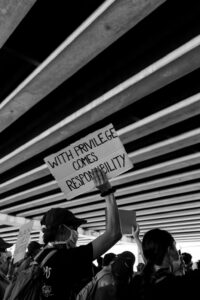 When you ask people to give up hate, then you need to be there for them when they do.
When you ask people to give up hate, then you need to be there for them when they do.
He told me that, I was like, oh, hell no. If the Klan hated black folks, I was all right with hating them back and I didn’t see any problems with that quid pro quo, right?
I didn't start this hate game, but I'm going to win it. But when I worked at the National Anti Klan network, which was renamed the Center for Democratic Renewal, it was part of our mission to help people who left hate groups. And then it became part of my job to work with these people.
And I do need to say I have never seen an example of someone flipping somebody out of a hate movement. I've heard stories that it can happen. And, people seem to think that you could have a conversation with a Klansman and suddenly they repent. I've never seen any evidence of that. What generally has happened in my experience is that they have their own Epiphanes and they know they're lost and they don't know what to do. That they have lived in a nether world of one set of beliefs and they can repudiate some of those beliefs, even, not all of those beliefs, but some of those beliefs, and they don't know where to go after that.
And what kind of thing causes that kind of an epiphany?
It could be a number of things. In Tennessee, I was working with a group of women whose husbands and sons were in the Klan and they didn't want their children raised in the hate moment. Not because I think they were repudiating hate, but because they were doing so much criminal activity and they didn’t want their kids going to jail. And they knew in Apalasia, class was going to compromise their relationship to their beliefs, despite their whiteness. So they were scared for their children. And of course, I have a suspect though, I don't have any evidence, that they were victims themselves. So a lot of domestic violence stuff as the story that they told was not the happy homemaker in a Klan robe story.
Another person I worked with son was born with what his plan is not Nazi, but it's called a genetic defect, a cleft palate, and his Nazi buddies told him that his son needed to be culled from the white race, because he was not a perfect Arion baby. And so that caused him to want to leave the Klan.
Another left because of criminal activities, the FBI was getting too close to some of the things that the Klan chapter was doing so the husband and wife team left.
And so there's a variety of reasons that people suddenly figure out that these are not the people they want to hang out with it anymore.
But it's rarely because they fell in love with a black woman, or they suddenly discovered that Jewish people were human after all or whatever it is that those are the scripts that Hollywood portrays. Those are not the experiences that I have had. Maybe other people have.
But once they do make that break with the hate movement, usually they're quickly exiled from that hate movement, if not killed because you don't just quit the Klan-like the Kalamas club because you're leaving with a lot of knowledge of criminal activities that people will kill to keep secrets.
And so they ended up calling. Organizations like ours for help to relocate. And we don't have the FBI's witness protection program. We can't help you change identities or anything, but we can use a network of churches and synagogues and temples. And what have you to help you go to another town, get you some clothes, because quite often they leave in the middle of the night, they don't get a chance to pack up and make an announcement by getting a pod pack planted on their front yard that they're leaving or anything like that. And so our job is to help them relocate and restart life under their identity, cause as I said, we can't help you change your name or anything, but we can give you a network of supportive people to help you restart.
And just because it had an epiphany on one issue doesn't mean they've had it across the board because a person who is fearful for their children may still be homophobic or antisemitic. And so by working with them, it becomes a process to help them recalibrate their thinking. It's not like overnight, they just suddenly saw the light. We're suddenly politically correct on every issue.
You're also describing, like going through that cult-like behavior that if you stray away, you're out, which is again, narcissistic, there's one end. But also, even when you're not in that, that I think some of the human rights movement is about you have to give stuff up. There's this idea that you can't be comfortable. You have to give things up and people don't want to do that. Unless, like in these cases that you're describing, it sounds like almost, it was like idiosyncrasy, like happenstance things happened a little bit more than like this internal change. Cause that there's so much pressure.
Actually. The problem is that whenever you join a cult by definition, you'd have to turn your brain off. The question is how prominently can you keep your thinking from happening? And so it is usually, the ones I've heard describe, it's a trickle. At first, you noticed one thing that doesn't make sense. And then another thing that doesn't make sense than another, and then it's the cumulation of things you can no longer explain to yourself that lead to that mental shift, that mental break.
Yes, it's really the one incident. But the people that I've mostly worked with are fairly intelligent people who just couldn't take it. People were serving them bigger bullshit sandwiches and inviting them to take bigger bites. And at some point, they gagged.
Do you think that will happen in this tight community that Trump has his arms around?
There's a difference between true believers and opportunists.
Trump is surrounded by a bunch of opportunists and they don't even believe the crap that they push out their own followers. That's why they're vaccinated. And they're telling their followers not to get vaccinated. That is so clear that they are using the gullibility of their followers. They don't actually believe the crap that they're putting.
Ted Cruz has a degree from Harvard, I believe. And you're going to tell me he's as stupid as he manages to sound every day. I don't think so.
So that it's opportunistic. It's not faith. It's not faith-based. You're not believing in the cause.
That’s right. So when people are peddling lies because of raw ambition, they're impervious to the truth.
Now I did have this conversation yesterday with a reporter friend of mine. I did an interview yesterday about January 6th and this friend of mine asked me, how could I keep hoping optimism up in such a time?
I said, actually I don't have to be very optimistic or very hopeful because I try to be pragmatic. Think about what our opponents are fighting. They're not just fighting us. They're fighting the truth. They're fighting evidence, they're fighting history, but most of all, they're fighting time. Any one of those four forces could kick their assets without any help from anybody else.
How the hell are you going to overcome truth and evidence and history and time? That's what they're actually up against. Now, a lot of wasn't going to get harmed and chewed up in the process and I'm sorry that's happening, but I know victory is certain because of who they have raped themselves. Again, I failed to believe that it is possible for mankind to defeat time, truth, evidence and history.
 I don't care what your political perspectives are.
I don't care what your political perspectives are.
I'm just breathing you in right now. I am just breathing in this message. And, it's not hopeful, It's just true. It's just pragmatic. Because then it's not hopeful, and then I'm going to lose my hope. It's just, you're saying this is just the truth. And even your example earlier, when I followed up with what would you say if they answered you, you are saying exactly the same thing you're saying now, which is, there's an active process of delusion to be able to stay in the ranks. And that's just a matter of time when you begin, the sandwich gets too big. Is that right?
Yeah. And at some point, you either got to start thinking again, or just accept that you delight in insanity and that feels safer. So I consider sanity a choice I make every day.
I think it was a joy to be able to know that choice and make it.
So is there anything that you would say to the folks that are trying to hold it together? Again, it's like this army of people, I really love the idea of everybody's in their own place, everybody's flawed. There's no purity. Nobody's pure.
I wonder if you could speak to hanging in, something about hanging in or where to go with these pressures, with COVID and with the climate and with all of these things, I just know, I can see it, and I can hear it. Murder-suicide is up. Anything, any negative, anything right now is just terrible. Like we've been under this crunch for quite a while and I just see people deteriorating. What are thoughts?
I don't know if any of these things are up or just being more reported? So that's part of, when I ran a rape crisis center because we advertise the hotline for people to call for help, we could never figure out whether more rapes were occuring and or more reporting was occurring.
And so I'm asking the same question when we get into the statistics of how bad things are in life. We need to examine what that data set we're looking at. Is it more reporting that we're looking at or more occurrences that we're looking at? Because we never actually had good baseline data. Sorry. That's my look that’s my science mind.
You're being consistent because that's the whole thing is perspective. And it's exactly what you said that you would do with folks. You think you know something, but do you really?
But nevertheless, whether it's more carrots or more reporting, my answer would be the same, to survive this world you need a toggle switch. You need to be able to turn that consciousness on and off. There needs to be a time when you turn when you toggle your consciousness off and you just sink into enjoying Twilight the film, or are you sinking into watching those westerns?
I have a friend of mine, his wife has watched every episode of Gunsmoke for 50 years because that's how she toggles her consciousness off. Yet, when she toggles it back on she's a hardcore activist.
You need to give yourself permission not to be woke, not to be on, not to be hyper-critical, not to be able to provide an analysis of all the gender dynamics of every romantic comedy in the world. Sometimes you just have to watch the damn thing and enjoy it!
And so that starts with not taking yourself so damn seriously! Again, you are just a link in the chain, you ain't the entire damn chain. And so it is okay to turn it off and take that vacation to the Caribbean where you just lay on the beach and do some healing. It is okay to gorge on your ice cream one day, because that's what you feel like doing without beating yourself up because you ate the whole cart.
And really, we were forgetting to give people permission to be basically human.
And you speak about it, that it should be fun.
Yeah. If you're not having fun fighting injustice, you're doing something wrong. My mentor Leonard is the one that framed that for me, he said, Loretta lighten up! Fighting fascists should be fun, it is being a fascist that's bad. And I've taken that to heart ever since he told me.
Walking through life immersed in a hate movement, that's the part that sucks! Being immersed in the human rights movement, why am I not having fun?
Again, oxygen! Nobody is saying these things. This is not a message that is being delivered very well, or at least very effectively. The message is more the drumbeat, the drumbeat! This is happening. What are you doing about it? And I think that it's pragmatic to allow people to be themselves in their flawed selves, they’re sometimes on and sometimes off, sometimes doing the right thing, sometimes not.That's the most powerful thing that you can do. It keeps people engaged instead of dissociating and just never watching the news again. You're saying toggle, toggle it down, turn it down a little bit, turn it up a little bit.
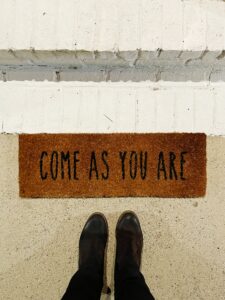 It's a come as you are invitation where you really mean it.
It's a come as you are invitation where you really mean it.
Ah, it's so inviting. It's wonderful. Is there anything else? There are a couple of books that you've written.
Reproductive Justice is an anthology that I edited with a team of four other writers.
And then I wrote Reproductive Justice with Ricky Solinger. And then Undivided Rights, which is also a book on reproductive justice that I wrote with other writers. So the calling in the book is my first solo fully authored book. And even then I'm overstating it, even though I've written, the 500 pages have been influenced by centuries of history, the great mentoring I've had with a lot of elders who didn't give up on insufferable me.
That is really wonderful and we're going to put all of those in our show notes. Are there other resources that you might guide people towards?
I love everything that Adrian Marie Brown has written. She is one of those young people that I'm awed by. I think Adrian's 20 or 30 years younger than me and everything she writes, I eagerly buy and inhale, like it's, one way that I called Adrian, I say, some writers take your breath away, Adrian gives you your breath back. That’s how strong she is. So I love reading her work. I don't agree with everything she says, but then I've never read anybody I totally agree with. But that I take from it, that which I find resonant and useful. I would recommend it to everybody.
I found some other resources that you had mentioned on another page. And so we're going to fill the show notes up with all kinds of things that you can do if you're motivated by this and you're interested. I also like human rights as the umbrella and that there are these different wings if you will. But that's the one mountain. That's the north star.
There are many pathways up the human rights mountain. You might go on the LGBT path. I'm going to go on the racial justice path or the disability path. Women’s rights, That's right. We're all in the same movement climbing the same mountain.
I love that. That's again a calling in that we're all in this together. Everybody can be differentiated and different and there's room for argument about what's the best way.
I hope we argue. Cause it's only in that crucible of argument that we arrive at the best solutions! Group think is actually the poorest thinking humanity can do.
It's so lovely. And if people wanted to reach you how would they do that?
At my website LorettaJross.com.
All right. That sounds good. So we are going to fill this up. The level of resource and the idea of giving this breath is just so powerful. And I can imagine people that are listening to this that are feeling the same thing. And, I know, you’re leaving this wanting more. So that would be where to go. You would go to therapistsunsensored.com/episodes, and you'll find this there, and that will link you to many of these resources. If you don't go directly to Lorettajross.com. Also, we would highly advise you to get these books. Is your new book out yet?
No, it will be out in the fall of this year. Simon and Schuster signed the contract with me last April and I didn't realize quite at the time that it meant that they controlled this release date, which is fine, cause they want to build a market up for it. No, I'm working with a lot of vice presidents there. So they're giving it a good investment in time and attention.
And the other thing I want to appreciate about them is that they pointed out when I was concerned about the delay in publishing the book, and I had largely written it before we signed the contract, they said, Loretta, this is an evergreen topic. Do you think people are going to stop calling each other before we get the book out, and I said, you got a point there.It will be timely. Let go of that anxiety.
Is there any reason they're holding it back?
It’s their developmental process, I talked to their marketing team, their young adult team. They have a whole strategy involved in it. I appreciate not getting that high level.
And, you do have a Ted talk that is fantastic. And it's relatively recent. So I would really direct people to go directly to the Ted talk and there are other YouTube videos out there and there are more presentations that you've done. We've just only scratched the surface.
Yes, the people in charge of social media, they keep posting stuff. And then I have a team that makes sure that stuff is up there. And I'm old school, I'm almost 70 years old. So I keep telling people my twat don't tweet, but that doesn't mean I don't know anything about social media, too. Young people handle it.
That is wonderful. But rest to say that the people who are laughing with us and they're delighted by this, there's a lot more of Loretta Ross out to be found and we just scratched the surface.
In particular, I loved, and sent to my son, your commencement address. That was just wonderful. And so there's lots more, please find her, follow her, buy her books. And is there anything else you want to direct folks to do?
Again, have fun joining the human rights movement. Because we are stronger than anybody who thinks that they can defeat our dream of human rights for everybody.
That's a perfect place to end. Thank you so much for spending time with us. I know that you don't always necessarily do these interviews and things like that, or may, I don't know, but I was just so grateful that you said yes.
You're right, they're getting rarer because my publicity team says that I make myself too accessible. And so what I used to give away and just like the professionals are saying Loretta, clam up till after the book is out there. They're really monitoring me now, which is fine. But what they get wrong is that I'm doing this to build a movement. That's right. You're doing this because it's profitable for you. You're helping me out, but don't get my motives mistaken for your motives. I'm doing this to build a movement. That's why I started that and I'm still on that, even though that means that you've got this intellectual property, going off, that is not my motive. And I can't become that just because it works for you.
That is fantastic. Love it. So thank you. Thank you for that.
Yeah, but they are getting less frequent, not because of the profit thing, because I just have to finish the book by April, but my available time is actually getting more limited to fulfill the contract. That's wonderful.
Having the privilege of the mic and having this kind of an audience, is there anything that you would say to me or to people that have just some privilege of a voice?
I can basically say anybody that makes you feel bad about being yourself, doesn't have your interest at heart. Trust that, we all have something to learn. We all have places we could grow, but anybody who really cares for us is going to offer that through the lens of love and respect. If they offer it in any other way, it really ain't about you. It's about them.
That’s how I really feel. I teach through that lens. Teaching should not be punishment. Teaching should not be hazing. Teaching should be the joy of learning. So I'm not letting you have fun learning, I'm doing something wrong.
And I teach a course called white supremacy and if we are not having fun talking about white supremacy, I'm doing something wrong.
We sometimes talk about light bulbs, like those light bulb moments and I'm there just sparking through this whole interview and through, I just know people are like, oh yes. Oh yes.Well, we will do anything to help promote your message. Thank you for being on our show.


